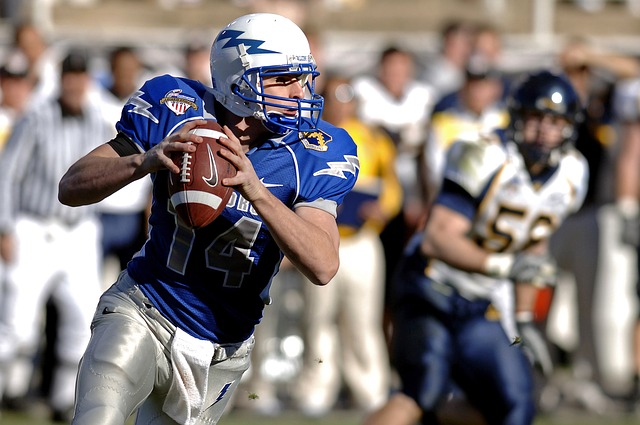
So many people love football, and many would love a career coaching the game. Head Football Coach at Crowley Independent School District Terry LeBlanc discusses the steps required to beginning and growing your career as a head football coach.
Overview of Requirements
The necessary requirements to become a head football coach are dependant on the level you wish to coach, however, regardless of the level of amateur football you wish to coach you can expect to need a bachelor’s degree and a teaching license. According to Terry LeBlanc a successful head coach must posses the following skills and knowledge:
• In-depth understanding of football
• Outstanding leadership skills
• Physical stamina
• Excellent communication skills
• Motivational skills
• Time management & scheduling
If you think this describes you – or you believe you can develop these skills – follow the following 4 basic steps to becoming a head coach as outlined by coach Terry LeBlanc:
Step 1 – Know the Game
It is not mandatory for candidates to be a professional football player in order to become a head coach. However, Terry LeBlanc urges that any prospective head coach should not only have a deep understanding of the complex rules and strategies of football but should also be able to express their passion and love of the game through their actions and words. According to Terry LeBlanc, simply being a fan of the game is not enough, a head coach must be prepared to eat, sleep, and breathe football. Terry LeBlanc believes that a head coach should actively follow game film at any given level – professional, college, high school – in order to remain up to date with coaching strategies, techniques, and trends.
One way to further develop your knowledge of the game is to participate in organized football. Whether you join an organization as a player or a volunteer, you will gain valuable experience in the football world that will directly help you hone your skills. The goal is not to become a professional football player but to immerse yourself in football culture and learn about more than the rules. Exposure to organized football will provide invaluable insight into team rituals and camaraderie.
Step 2 – Get Your Degree
The next step in your path to coaching is to earn a bachelor’s degree in a field related to coaching or physical education. Throughout your education you will learn everything you need to know, including topics such as:
• Sports psychology
• Physical conditioning
• Nutrition
• Injury prevention
• Athletic training
In order to become head coach at a middle or high school level, you will need a bachelor’s degree in education, with a major in mathematics, English, history, or physical education. A bachelor’s degree in education will also involve a student teaching experience, so be prepared to learn in a hands-on environment.
While you are working towards obtaining your bachelor’s degree, you should also get involved in postsecondary football. While starting early is strongly recommended it is never to late to become involved in a high level of football, many times there are options to volunteer your time or be a member of an intramural league.
Step 3 – Obtain Your License
Regardless of which state you live in you will need a teaching license in order to coach children between the Kindergarten and Grade 12 levels. Obtaining your teaching license is a separate process from getting your bachelor’s degree, so make sure to conduct your research first.
Step 4 – Gain Experience
Before becoming a coach – and much less a head coach – you will need to get experience as an assistant. Many coaches often gain experience as position coaches at the beginning of their careers in order to develop coaching strategies and leadership skills. Position coaches work with smaller groups of athletes on a more intimate level than head coaches and have do not share the heavy pressures associated with head coach or coordinator positions. If you are coaching at a college or professional level, every player position has a specific coach – this is where you’ll be starting.
The path to becoming a head coach is long and demanding, and many develop their dreams of coaching at an early age. As a head coach your job is to set your players up for success, keep them safe, and inspire athletes with your actions. Terry LeBlanc’s final tidbit of advice for potential head coaches is to always remember that your players safety comes first, and always tailor your coaching strategies to reflect the age group of the players you coach.


